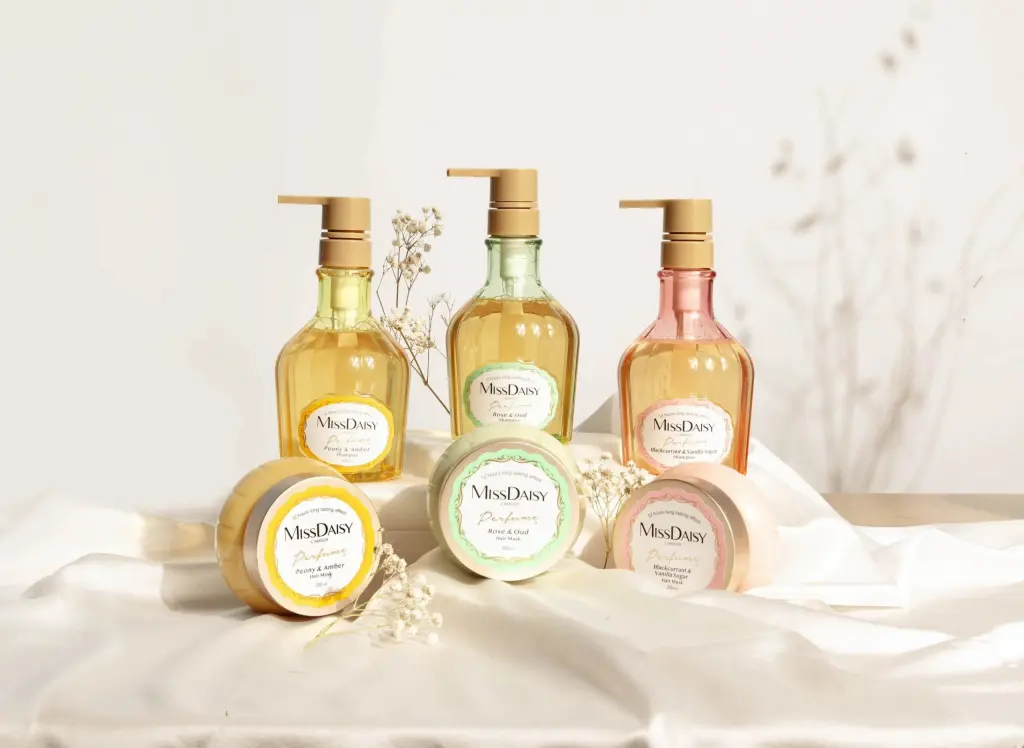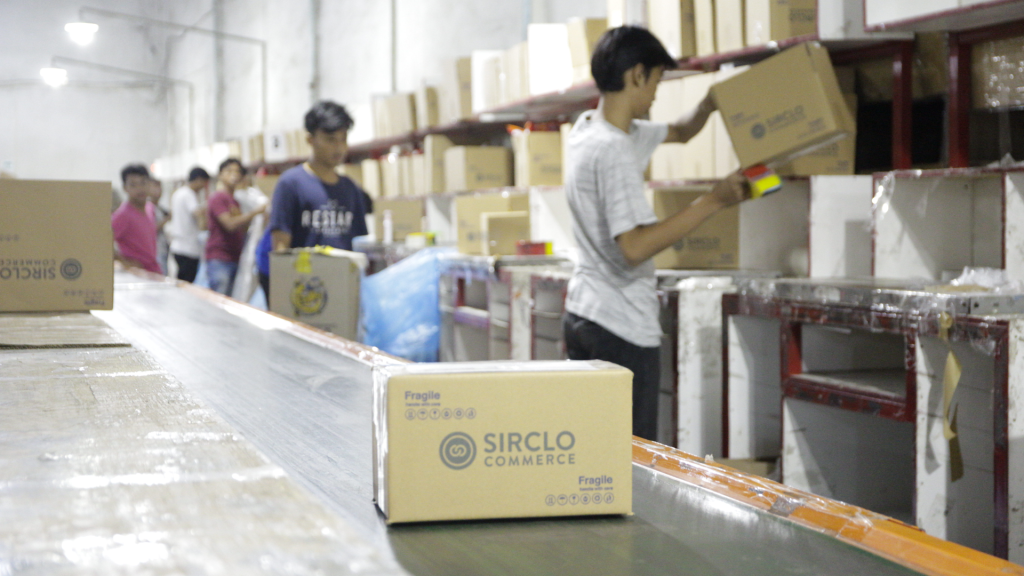
Ecommerce enabler Rocketindo bootstraps its way to 300% growth, profitability
Share
Social media users in Indonesia might recognize the viral “spill your first salary” clip posted by Rocketindo last December, where its employees shared their past jobs and their paychecks.
However, despite having millions of views and over 150,000 followers on Instagram, the ecommerce enabler has stayed under the radar, with relatively few media mentions.
It hasn’t raised any venture capital, with founder and CEO Daniel Liu relying on his own funds to kickstart the company’s operations in 2016.
Rocketindo claims to have achieved significant growth while being bootstrapped. The company says it recorded around US$17 million in gross merchandise value (GMV) last year, growing by more than 300% since 2021, while annual revenue growth was 200% within the same period, although exact figures were not disclosed.
The firm also says that it has been in the black – on a net profit basis – since 2023.

Rocketindo COO Jerry Liu (left) and CEO and founder Daniel Liu / Photo credit: Rocketindo
Daniel – who manages Rocketindo with his twin brother, Jerry Liu – attributes the company’s growth to its expertise in social media marketing. So far, the firm only targets international brands looking to expand to Indonesia.
“We have demonstrated our ability to drive success even at higher price points selling middle- to high-end products,” Daniel tells Tech in Asia.
The Taiwan factor
The Liu brothers hail from Taiwan, and Rocketindo has a clear focus on enabling Taiwanese brands to enter the Indonesian market.
This aligns neatly with the Taiwanese government’s New Southbound Policy, which was meant to diversify Taiwan’s markets by strengthening its relations with neighbors to the south, including Southeast Asia.
The Taiwanese origins of the brands on Rocketindo have enabled them to charge higher prices, too.
For instance, while local shampoo products retail for under 100,000 rupiah (US$6.1), shampoo brand Miss Daisy, a Rocketindo client, sells its items for 100,000 rupiah (US$6.1) to 300,000 rupiah (US$18.4).
Besides having to pay extra costs for taxes and distribution, Rocketindo justifies the bump in prices by positioning its international brands as the providers of “premium” goods.

Photo credit: Miss Daisy Indonesia
In 2023, Miss Daisy posted a GMV of US$3.5 million in Indonesia alone, the same GMV recorded by Eileen Grace – a Rocketindo skincare client. In April this year, the two brands were cited as top-selling shampoo and mask labels on Shopee, respectively.
Rocketindo claims that it has an up to 15:1 ratio in return on ad spending (ROAS), which means it makes US$15 for every US$1 spent on advertising. That’s a large jump from the ecommerce industry’s average 2:1 to 3:1 ratio, the firm says.
Jerry, who is the firm’s COO, attributes the company’s high ROAS to its “strong and professional” marketing team, without elaborating further.
So far, the company has partnered with 10 brands, which also include mother care brand Mamaway, hair care provider SH-RD, and skincare label Polynia. It also manages its own beauty brands, Cleviant and Mosseru, with their supplies produced in Indonesia.
Beauty focus
Rocketindo sets itself apart with its focus on beauty products, unlike other players that accommodate a wider range of items.
“The first client was Eileen Grace,” Jerry says. “And somehow we just got more beauty brands.”
While the startup had no initial intention to specialize in this field, the timing was opportune, as Indonesia’s beauty and personal care market was booming.
According to Statista, the segment will generate US$9 billion in revenue in the country this year, with an expected growth of 18.7% by 2028.
See also: The key players in Indonesia’s beauty commerce space (update)
However, Rocketindo’s other strategies are broadly similar to those of its rivals.
For instance, Rocketindo maintains an omnichannel presence, just like competitor Sirclo.
Besides selling on ecommerce platforms like Shopee, Rocketindo’s brands also trade through offline channels like Sociolla’s retail stores, Chinese retailer KKV, and individual retail shops.
Meanwhile, Sirclo – which handles 1,000 enterprise-level brands in FMCG, fashion, and other segments – says that 1 million MSMEs sell their products via Sirclo’s online store and other channels.

Photo credit: Sirclo
Similarly, Power Commerce Asia, another competitor with 50 local and multinational brand partners, aims for deeper market penetration in Indonesia this year with a “multifulfillment” strategy. This means each of the cities it operates in will be provided one warehouse, which will ideally lower shipping costs for users.
Another similarity between the three enablers is that they deploy a dedicated team for each brand they’re working with. At Rocketindo, 100 out of its 150 employees are sales representatives spread across 30 cities in Indonesia.
As Indonesia strengthens regulations on foreign products sold online, having an offline presence and collaborating with MSMEs has become even more crucial for international brands and their enablers.
To protect local MSMEs, the Ministry of Communication and Information Technology established a task force last year to oversee cross-border commerce on social media.
Additionally, the Trade Ministry revised a regulation that involves restricting the use of social media platforms exclusively for promotional purposes. The new rules prohibit social commerce platforms from carrying out in-platform transactions.
In response to this, Rocketindo previously stated that it has a legal team dedicated to handling import-export regulations and that it consistently adheres to all applicable laws.
Despite these circumstances, Rocketindo maintains an optimistic outlook, setting a target to double the company’s 2023 GMV figure this year. The firm also wants to open a physical store in Indonesia and expand its partner base outside of Taiwan.
Painful beginnings
Before Rocketindo attained any form of success, founder Daniel began his journey with a “devastating” loss of 15 million New Taiwan dollars (US$463,000) between 2013 and 2016. He chalks this up to his “unfamiliarity with the Indonesian market” despite nearly 10 years of prior industry experience.
Daniel eventually found the right customer and transformed Rocketindo into what it is today, even without venture funding.
Although the firm says it is not short on cash, it is now seeking external funding to scale even faster, especially through its offline channels.
“Since we plan to have more private brands, as well as offline stores, we’re open to outside funding,” Jerry tells Tech in Asia in an interview.
It also aims to go public in Indonesia or internationally within the next three years.

The Rocketindo team / Photo credit: Rocketindo
Indeed, having an investor can make a difference. Both Sirclo and Power Commerce Asia credit their backers with fueling their expansion efforts.
After raising money from undisclosed investors last year, Power Commerce Asia says it’s on track to complete its series B funding this year. Meanwhile, Sirclo has raised over US$100 million since its founding in 2013, including a US$10 million series C round from Vertex Ventures in June 2023.
That said, the global macroeconomic conditions this year may pose a major challenge for international brands looking to operate in Indonesia.
The escalating conflicts between various countries have also disrupted the world economy, affecting export and import activities significantly, according to Power Commerce Asia.
Imports to Indonesia will become more expensive, as the cost of raw materials and overseas production increases.
See also: Zalora’s no longer the fashion shopping site you used to know
Nevertheless, industry players remain hopeful, especially with the significant untapped potential in Indonesia’s lower-tier cities.
The average yearly growth in new ecommerce users outside of Java between 2020 and 2023 was over 64%, according to Sirclo’s data. Meanwhile, Statistics Indonesia reported that in 2022, less than 15% of local ecommerce players delivered goods to each of the main islands outside Java.
“I believe our value as an enabler is to not only provide market access but also build a dedicated customer base in Indonesia,” Daniel says.
Currency converted from Indonesian rupiah and New Taiwan dollars to US dollar: US$1 = 16,306 rupiah; US$1 = NT$32.36.
